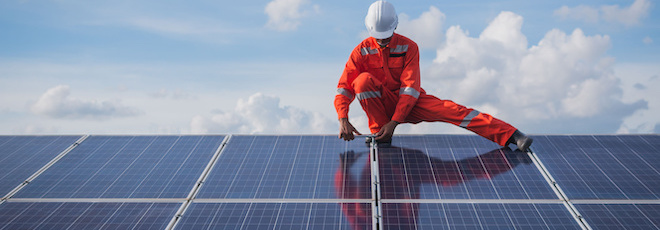

The Inflation Reduction Act of 2022 (IRA), passed last year, will be a game-changer for homeowners looking to make energy-efficiency home upgrades.
One goal of IRA is to help the country transition to a clean energy economy and cut its reliance on fossil fuels. It provides $369 billion to support the adoption of clean energy by homeowners and renters through renewable energy equipment and energy-efficient home improvements and offers Federal income tax credits and rebates for these upgrades until 2032.
Such upgrades could mean swapping gas stoves for induction and replacing gas water heaters with heat pump water heaters. Other home upgrades covered under IRA include rooftop solar, new electrical panels, doors and windows, and insulation and air sealing.
Here are some examples of available IRA tax credits for homeowners:
- Home energy audits – A 30% tax credit (up to $150).
- Heat pumps – A 30% tax credit for the costs of buying and installing a heat pump.
- Windows and skylights – A 30% tax credit (up to $600 annually) on exterior windows and skylights.
- Electric vehicles – Up to $7,500 toward the purchase of a new electric vehicle (EV) and up to $4,000 toward the purchase of a used EV.
Since your clients and prospects likely will be asking you questions about IRA, now is a good time to start getting familiar with it. Here are five resources to get you started and to share.
- Guides. The Natural Resources Defense council’s (https://www.nrdc.org/stories/consumer-guide-inflation-reduction-act) “A Consumer Guide to the Inflation Reduction Act” talks about how to tap IRA tax credits and rebates. Rewiring America’s resources include downloadable IRA Fact Sheets (https://www.rewiringamerica.org/ira-fact-sheets), the Rewiring America’s Guide to the Inflation Reduction Act https://www.rewiringamerica.org/IRAguide), and a calculator (https://www.rewiringamerica.org/app/ira-calculator), “How much money can you get with the Inflation Reduction Act?”
- Internal Revenue Service (https://www.irs.gov/inflation-reduction-act-of-2022). Stay current on IRS updates on IRA and find the appropriate tax form (Form 5695) to calculate and take residential energy credits.
- Recent articles. See “Inflation Reduction Act Tax Credits and Rebates: Save On Home Energy Upgrades With These Incentives” (https://www.cnet.com/home/energy-and-utilities/save-on-your-next-home-energy-upgrade-with-these-incentives/), “Save More with Tax Credits for Energy-Efficient Home Improvements” (https://www.kiplinger.com/taxes/605069/inflation-reduction-act-tax-credits-energy-efficient-home-improvements), and "Federal Tax Credits for Energy Efficiency" (academized.com/blog/federal-tax-credits-for-energy-efficiency).
Education. Take the National Association of REALTORS®’ free one-hour course, Intro to Sustainability and Resiliency: What REALTORS® Need to Know (https://www.nar.realtor/sustainability/intro-to-sustainability-and-resiliency-what-realtors-need-to-know). It will give you an understanding of the impact sustainability has on your business, confidence in talking about sustainability topics with clients, and a better understanding of the benefits clients are looking for.
